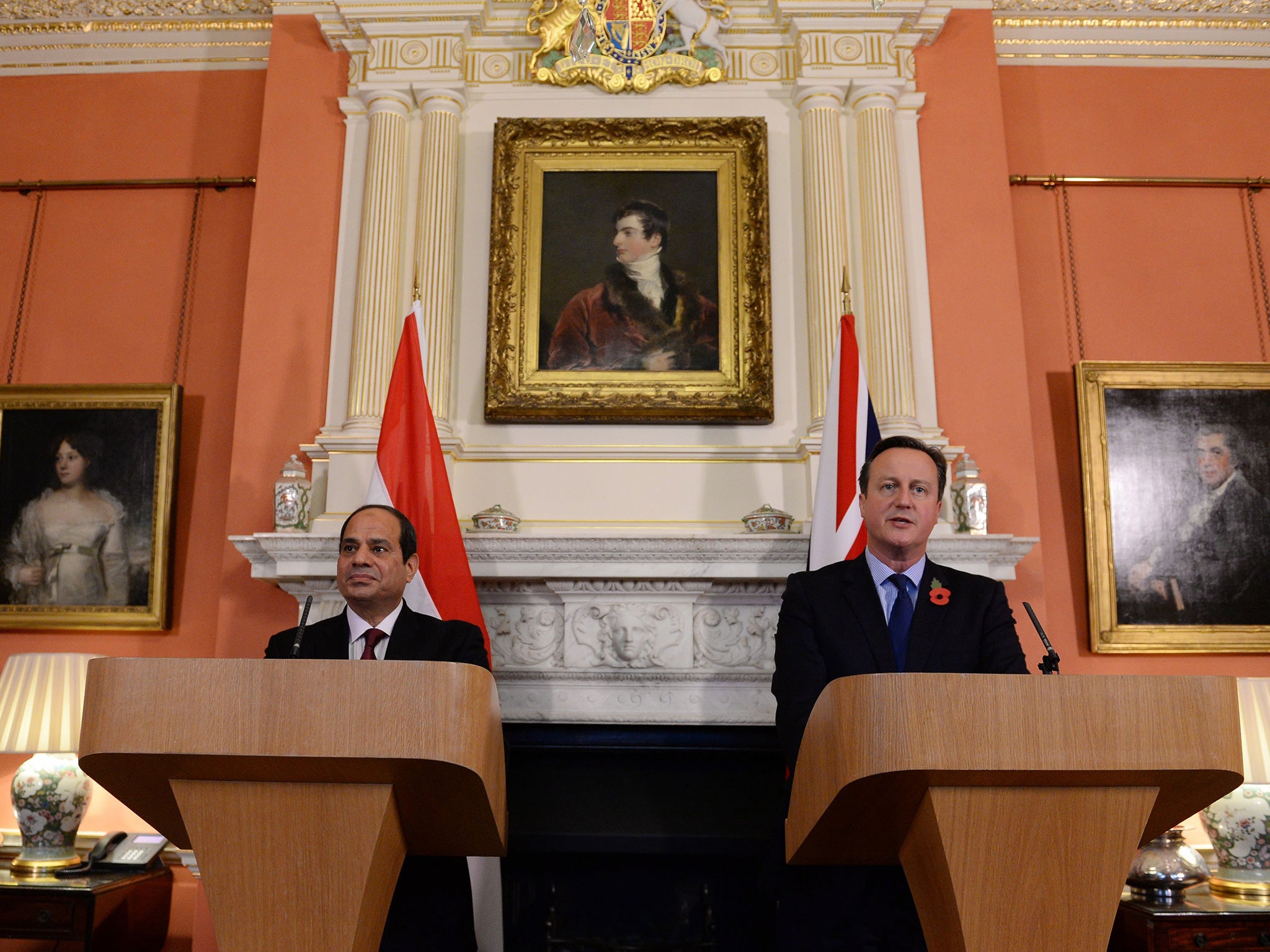Egypt executions: Figures show dramatic rise in death sentences and mass trials under presidency of Abdel Fatah al-Sisi
Europe accused of ‘turning a blind eye’ to repression by the former military chief, as 600 are sentenced to death this year

Almost 600 people have been sentenced to death in Egypt since the beginning of last year, according to new figures which also indicate a disturbing rise in the number of executions and use of mass trials under the presidency of Abdel Fatah al-Sisi.
The research, published in the wake of the President’s first official visit to the UK, shows Egypt has passed the death sentence 588 times, with 72 per cent of cases involving people who attended pro-democracy protests.
The figures, produced by the human rights group Reprieve, suggest Egypt’s justice system has become considerably more brutal since Mr Sisi’s rise to power following the army’s overthrow in 2013 of President Mohammed Morsi.
The current regime has also executed at least 27 people since the start of 2014, compared with just one execution carried out between 2011 and 2013. At least 15 mass trials have also taken place since March last year, where tens or sometimes hundreds of co-defendants are tried on almost identical charges.

Accusing the Egyptian government of employing a policy of “mass incarceration, mass trials and mass death sentences as a tool of political repression”, the report cites figures suggesting that around 41,000 people are currently imprisoned for supporting pro-democracy movements.
One of these is the Irish teenager Ibrahim Halawa, who has been in prison for more than two years after being charged with taking part in a banned protest in Cairo in July 2013. His lawyers say he has endured beatings and other mistreatment as he awaits a mass trial scheduled for December involving almost 500 defendants. If convicted, he could face the death penalty.
Egypt’s widespread crackdown on dissent has resulted in an explosion in the number of people awaiting trial, forcing authorities to adapt Wadi El-Natrun prison near Cairo so “vast swathes of defendants” can be tried and sentenced simultaneously, the report says. During the mass trials, “little or no evidence” is produced against those accused, it adds.
“President Sisi has overseen an unprecedented surge in death sentences as part of a wave of repression that should attract condemnation from Egypt’s allies,” said Maya Foa, director of the death penalty team at Reprieve.
“Since 2013, many thousands – including journalists, activists and juveniles like Ibrahim Halawa – have been locked up for attending protests.
“Police torture is reported all too often, and Kafkaesque ‘mass trials’ have seen hundreds of death sentences handed down at a time. More than ever, the UK must use its increasingly close relationship with Egypt to urge an end to these terrible abuses – including the release of juveniles like Ibrahim.”
The Reprieve report also says that during the initial hearings for Mr Halawa’s mass trial, the co-defendants were held in three soundproof glass cages, meaning they were unable to be heard unless the judge activated a microphone inside.
“The defendants never had the chance to speak at their own death penalty trial,” it adds. At least nine of the accused were children at the time of the protest they are charged with attending.
Despite the apparent rise in repression, governments such as the UK are increasingly “turning a blind eye” to abuses in Egypt, the report adds, accusing European administrations of adopting a “business as usual” approach to their dealings with Mr Sisi’s regime.
A Foreign Office spokesman said: “The Government opposes any use of the death penalty as a matter of principle and the human rights minister Baroness Anelay set out this position most recently on 10 October in a statement to mark World Day for Abolition of the Death Penalty.”
Join our commenting forum
Join thought-provoking conversations, follow other Independent readers and see their replies
Comments
Bookmark popover
Removed from bookmarks